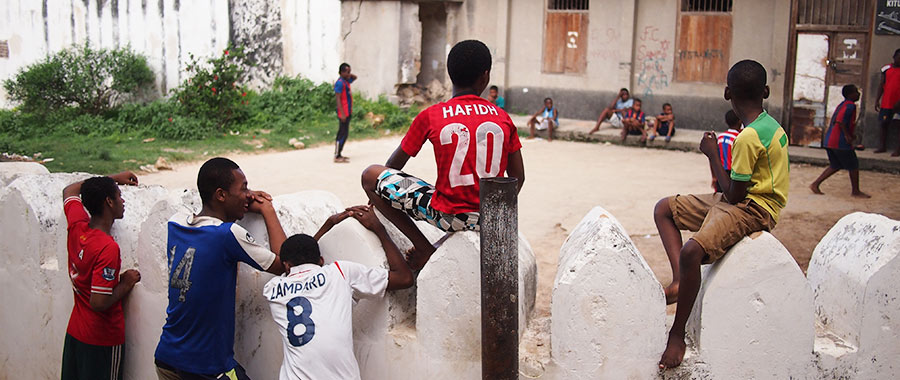Empathy is a cornerstone of human connection, allowing individuals to transcend the boundaries of their own experiences and create meaningful bonds with others. In the context of Bahá’í teachings, empathy is not merely a personal attribute but a divine imperative that fosters unity and understanding across diverse cultures. One exemplary manifestation of this principle can be seen in Tanzania, where a Junior Youth Group embarked on a transformative journey to cultivate empathy amongst its members and the community at large. This endeavor serves as a profound illustration of how grassroots movements can contribute to the broader goal of social transformation.
Situated at the confluence of rich cultural heritage and contemporary challenges, Tanzania presents an ideal landscape for exploring the Bahá’í principle of empathy. The tapestry of its society includes various ethnic groups, languages, and beliefs, each contributing to the country’s unique character. In this milieu, a Junior Youth Group emerged, consciously striving to embody the spirit of empathy as articulated in Bahá’í teachings. Central to this initiative is the recognition that every individual has a story, a narrative that deserves acknowledgment and respect.
Thematic metaphors play an essential role in the dissemination of empathetic values. The journey embarked upon by the Junior Youth Group can be likened to the process of weaving a vibrant quilt, where each participant adds their own patch—stories, experiences, and lessons learned—into a collective assemblage. This “quilt” serves not only as a physical representation of unity but also symbolizes the interdependence of all individuals within the community. Each patch reinforces the idea that while we may be distinct, our common humanity binds us together, urging us to empathize with one another.
At the heart of this transformative journey lies a curriculum designed to cultivate the capacity for empathy through structured activities and dialogue. The group organized workshops that facilitated storytelling sessions, allowing participants to share personal experiences that elicited vulnerability and understanding. Engaging in this practice nurtured an environment where youth felt safe to express their fears, hopes, and challenges, fostering deeper connections among peers.
Moreover, the Junior Youth Group implemented community outreach programs aimed at addressing local societal issues. These initiatives provided members with firsthand experiences, enabling them to witness the struggles faced by their neighbors. For instance, organizing community clean-up campaigns or helping to refurbish a local school allowed the youth to see the tangible impact of their efforts. Through these experiences, they not only learned about collaboration but also developed a nuanced understanding of the complexities surrounding community issues—fostering empathy in action.
In parallel, another metaphorical thread woven into this journey was the notion of “planting seeds.” Each interaction, each empathetic gesture, was seen as a seed sown in the hearts of individuals. Over time, these seeds would germinate, leading to a flourishing garden of compassion and understanding in the community. This image of cultivation encapsulates the steady, often slow, yet ultimately rewarding process of nurturing empathy, highlighting that meaningful change does not occur overnight but rather through sustained effort and dedication.
Of significant importance in this journey was the role of mentorship. Experienced facilitators guided the Junior Youth Group, embodying the Bahá’í principle of service to others. These mentors not only provided wisdom but also acted as exemplars of the empathy they aspired to cultivate. Through their influence, younger members gleaned insights on how to navigate complexities in interpersonal relationships and were encouraged to approach conflicts with compassion and understanding. This relational dynamic emphasized that empathy is a skill that can be developed through practice and guidance.
As the group progressed, the transformative effects of their efforts began to ripple outward, influencing the broader community. The Junior Youth Group became a catalyst for change, inspiring others to embrace empathy and engage in collaborative initiatives. This was not merely a matter of fostering goodwill, but rather a strategic approach to instill a culture of understanding that resonated deeply within societal structures. The collective impact of such grassroots movements highlights the expansive potential of youth empowerment within the framework of Bahá’í teachings.
In retrospect, the journey of the Junior Youth Group in Tanzania exemplifies a profound exploration of empathy as an integral part of human development and societal progress. By weaving threads of storytelling, community service, and mentorship with a commitment to Bahá’í principles, these young individuals have created a compelling narrative that encourages others to follow suit. This endeavor not only enriches the lives of its participants but also cultivates a legacy of compassion and understanding that has far-reaching implications.
In conclusion, the unique appeal of this narrative lies in its authenticity and its embodiment of the Bahá’í commitment to universal compassion. As the Junior Youth Group continues to embark on new initiatives, it stands as a testament to the belief that through empathy, individuals can forge a brighter future—one patch, one seed, and one heart at a time. The journey does not culminate in a singular achievement but rather evolves, inviting ongoing reflection and action within the ever-expanding tapestry of human experience.
